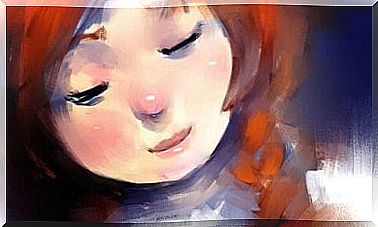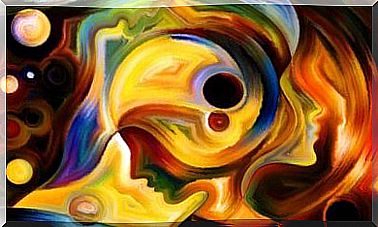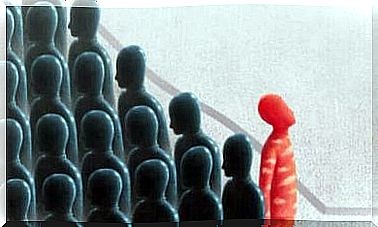Depression: A Chemical And Emotional Accumulation In The Brain
Depression is a continuous accumulation where the days pass slowly. Where there are no more tears left, even if you want to cry it out. Where you feel like you’re dying, because there are no more smiles left for your hopeless brain…
These feelings are very familiar to many people. It refers to an extremely complicated and unique mood disorder. Depression is a public health problem with major ripple effects. According to the WHO (World Health Organization), more and more people will be affected by depression in the coming years.
We invite you to dive into this interesting aspect of our health and well-being.
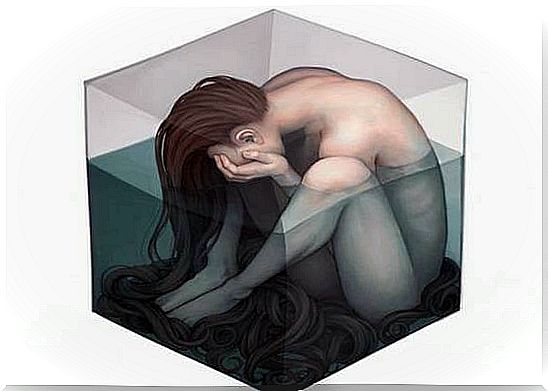
Depression, a quiet stigma
Depression does not happen overnight. Nobody chooses it as part of their everyday life like that without further ado. None of us have chosen this type of separation from the usual rhythm of life either. A separation from positive emotions, from all joy. It simply has a very slow start. It develops slowly and with such heaviness that it eventually sinks us into helplessness, bad mood, pessimism and a state where we are unable to react.
Psychiatrist and professor at the Mental Health Sciences Department at University College London (UCL), Michael King, is one of the researchers behind the famous PredictD test. This test wants to predict the risk one has of developing depression. King explains that even in our time, this disease is too stigmatized.
Just as various studies reveal, it is estimated that almost 50% of depressive disorders do not receive any treatment. Or they do not receive the best form of treatment for the individual needs of each patient. This causes thousands of people to float towards their own personal scenarios. And thousands of people around the world choose suicide as a solution to their pain and grief. This, or they will simply be consistent with the fact that their lives are met by one relapse after another.

When the brain is no longer at wavelength with life
According to more spiritualistic tendencies, we all have the capacity to “vibrate”. You might say that all people emit some form of inner music. This music, in turn, allows us to connect with our fellow human beings, with certain places, contexts and activities that appeal to our personalities. This inner “melody” is a reflection of an active, passionate and curious brain.
When depression takes its toll, this ability to “vibrate” is shut down because the electrical impulses from certain parts of the brain are reduced or slower than usual. We are entering a state of semi-lethargy, where fewer neural synapses are taking place. A deep and fragile chemical accumulation takes place, making it difficult for us to let go to reconnect with our lives.
We’ll take a closer look at this in a moment.
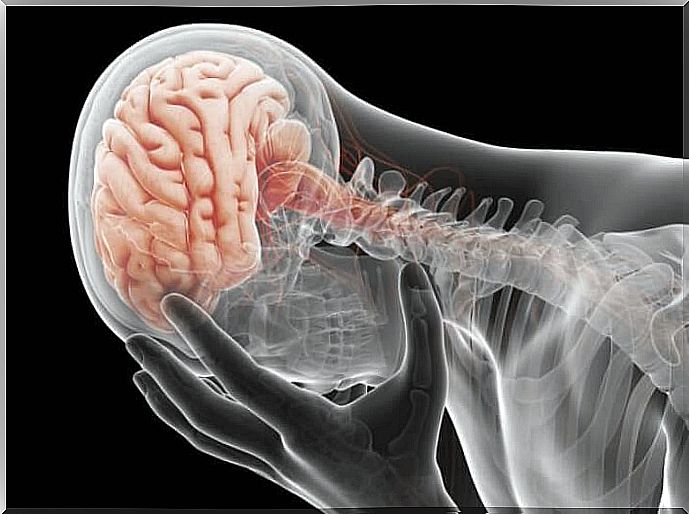
The effects that depression has on the cerebral “architecture”
It is important to emphasize that depression does not exclusively originate in an imbalance in our neurotransmitters. Genetic predisposition, emotional factors and even medical problems can undoubtedly make us more vulnerable. Regardless, the effect this disorder has on our brains is very clear. Let’s take a closer look at that.
- Hippocampus: is part of the limbic system and is responsible for processing memory, especially long-term memory. According to several studies, experiencing long periods of depression and chronic stress will provoke a reduction in the size of this structure. Then we may experience memory loss and develop difficulty concentrating.
- Depression, in turn, orchestrates subtle and complicated chaos where acetylcholine, serotonin, norepinephrine or dopamine will get us out of emotional balance. This makes it harder for us to fall asleep, or to feel motivated for something or someone, to the point where it can feel like the whole world has literally closed all its doors to us.
- Another structure that is worth noting is the thalamus. This is a neural area that receives sensory information and transmits it to a corresponding area of the cortex, or cerebral cortex. Thanks to this area, features like chatting and moving are controlled. Patients who are depressed experience a certain degree of inertia when they have to move or communicate with great empathy or cheerfulness. This is a very striking feature.

Depression itself is a complex enemy that finds its way into our brains and our hearts – right where it hurts the most. Our thoughts become chaotic, disorganized and bitter. Up to the point where they can fall into a mental and emotional accumulation that can last year after year.
Do not let this happen. Do not give up yourself. Allow someone to actually help you. And, above all, fight hard to get ashore. Fight for the opportunity to once again put on the shoes of hope and glasses that have glasses that are filled with optimism.

